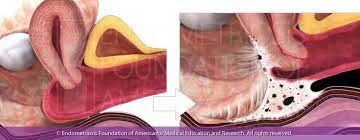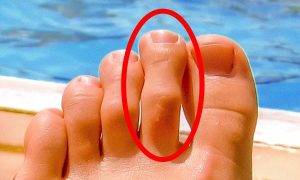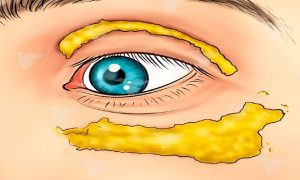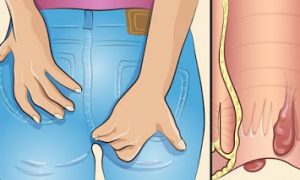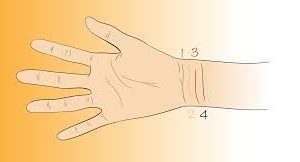For some women, it is temporary, while for others, it can become chronic. Dyspareunia refers to persistent or recurrent genital pain that occurs just before, during, or after intercourse or other sexual activities. It can significantly impact women’s lives, mental, physical health, and relationship. Yet, painful intercourse remains a little talked about issue.
Many conditions can lead to dyspareunia. This article will discuss 9 possible causes of dyspareunia in women.
Let’s talk about the most likely reasons why a woman might experience pain during sex.
1- Pelvic inflammatory disease
Pelvic inflammatory disease (PID) is an infection of a woman’s reproductive organs. PID is usually caused by sexually transmitted diseases (STDs), especially chlamydia and gonorrhea. Other vaginal infections like bacterial vaginosis can also cause PID. When there is an infection in the vagina that is left untreated, it can spread from the vagina to the cervix and the upper genital tract: the uterus, fallopian tubes, and ovaries.
In PID, the genital tissues are inflamed, causing deep vaginal pain during sex.
2- Sexually Transmitted Diseases (STDs)
Sexually transmitted diseases (STDs) are caused by bacteria, viruses, or parasites and spread through sexual contact. STDs can potentially cause painful sex. Chlamydia and gonorrhea can lead to vaginal irritation, which triggers pain during intercourse. Blisters and sores caused by genital herpes can make the penetration painful.
3- Vaginitis
Vaginitis is the term to describe various disorders that cause inflammation of the vagina. Vaginitis usually results from infections such as UTIs, bacterial vaginosis, and vaginal yeast infection. The inflammation of the vagina can cause abnormal vaginal discharge, irritation, and itching, which may create pain and discomfort during sexual intercourse.
4- Vaginal dryness
The walls of the vagina are lubricated with a thin layer of clear fluid thanks to the hormone estrogen, which helps maintain that fluid and keeps the vagina supple and moist. Vaginal dryness is mainly caused by a drop in estrogen levels which occurs in menopause or during chemotherapy. Childbirth and breastfeeding can also cause estrogen levels to decline.
Some hormonal birth control and medications such as allergies medications and blood pressure treatment can lead to vaginal dryness as well.
Vaginal lubrication reduces friction during sex, so vaginal dryness can cause pain during and after sex.
5- Uterine fibroids
Uterine fibroids -also called myomas-, are benign (noncancerous) tumors that grow on the surface or inside the uterus. Some women with fibroids can experience pain and bleeding during sex. Fibroids can put extreme pressure on the uterus and cause pain during penetration or deep pain in the vagina, especially if the fibroids grow close to the cervix.
6- Endometriosis
Endometriosis occurs when the endometrium, the tissue that usually lines the inside of the uterus, grows outside it. The endometrial tissue can abnormally grow on the ovaries, the fallopian tubes, the bowel, and the lining of the pelvis. Dyspareunia is a common symptom of endometriosis. Penetration and vaginal activities during sex can pull and push endometrial tissue and cause pain.
Because endometrial tissues grow in different places outside the uterus, women experience pain differently.
Some women report pain only with deep penetration, while others experience pain with certain sexual positions or after sex. The pain can also range from mild to severe.
Sex may be the most painful if the endometriosis has grown behind the vagina and lower uterus.
7- Vaginismus
Vaginismus is a condition in which the muscles of a woman’s vagina squeeze or spasm involuntary when something is entering it. This makes it difficult to have sexual intercourse despite her desire for sex. Painful sex is usually the first symptom of vaginismus. Doctors don’t know exactly the cause, but they believe it’s linked to anxiety or fear of having sex. Besides, it’s not always easy to know which came first, the vaginismus or the anxiety.
There are two types of vaginismus:
- primary vaginismus_ Also known as lifelong vaginismus, it is when a woman has never been able to tolerate any form of penetration.
- secondary vaginismus_ It occurs when women develop vaginismus later in life, potentially due to factors such as gynecologic surgery, trauma, or radiation
- Some women have vaginismus with any object or situation, including gynecological exam and tampon insertion.
8- Irritable Bowel Syndrome (IBS)
Also known as irritable colon, irritable bowel syndrome is a common and chronic disorder that affects the large intestine. IBS causes abdominal pain, bloating, and alternating diarrhea and constipation but also dyspareunia. Women with IBS usually suffer from pain during deep penetration. They also report a decrease in libido and lubrification, which worsen the pain during sex.
9- Emotional Factors
Painful sex can also occur due to psychological factors and mental health disorders such as anxiety, depression which can inhibit sexual arousal and lead to vaginal dryness or vaginismus. Besides, pelvic floor muscles are extremely sensitive to stress. Stressful situations can make pelvic floor muscles tighten during sex resulting in pain. History of sexual abuse, relationship problems can also contribute to painful sex.
Final thoughts
Although painful sex can be tough to discuss, it is important to seek help. Dyspareunia can be treated and should be deal with as soon as it starts. Your doctor will recommend you a treatment based on the cause of the dyspareunia.
© Possible Causes Of Dyspareunia In Women (Painful Sex)
Readmore: https://style-care.blogspot.com/2022/12/possible-causes-of-dyspareunia-in-women.html


